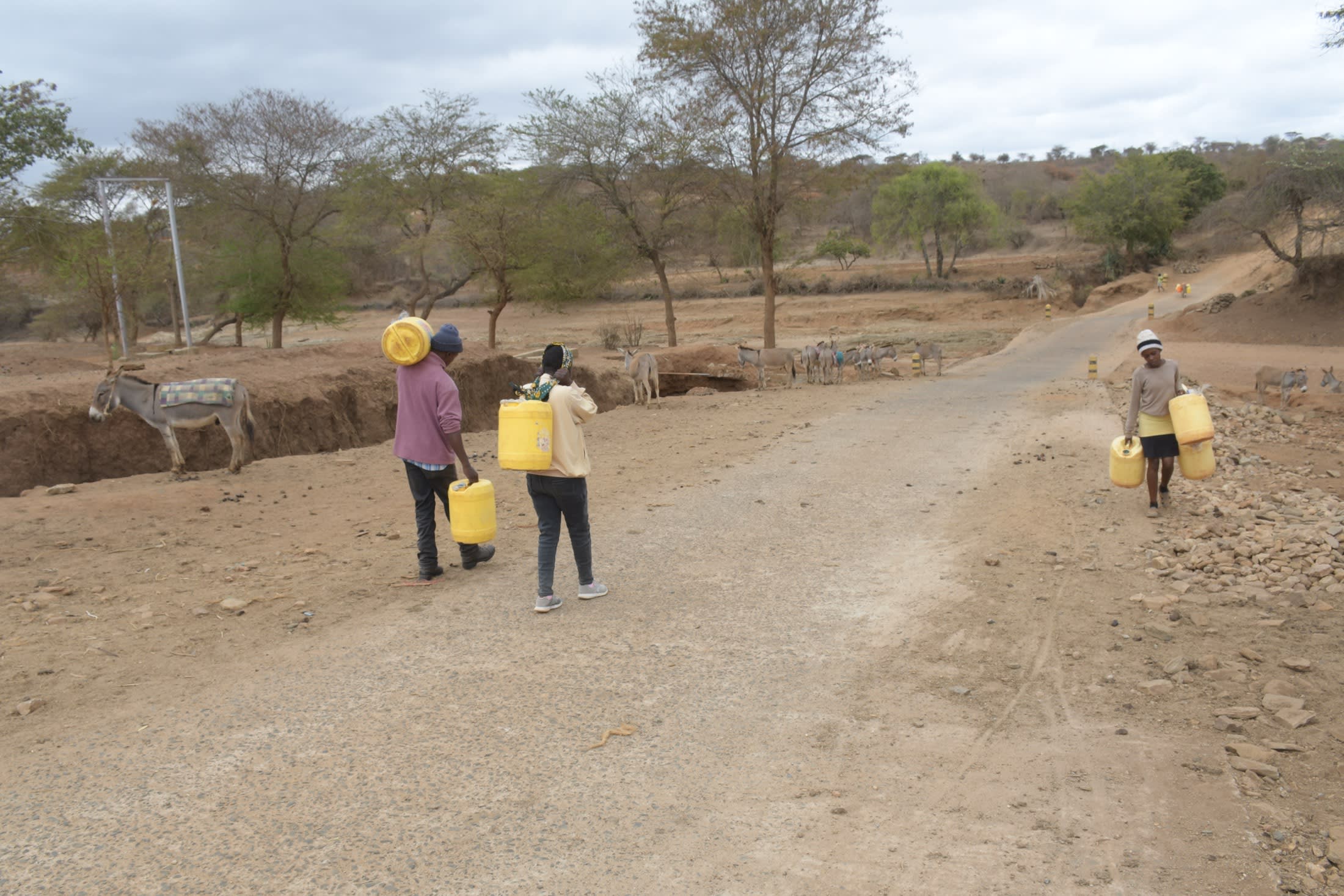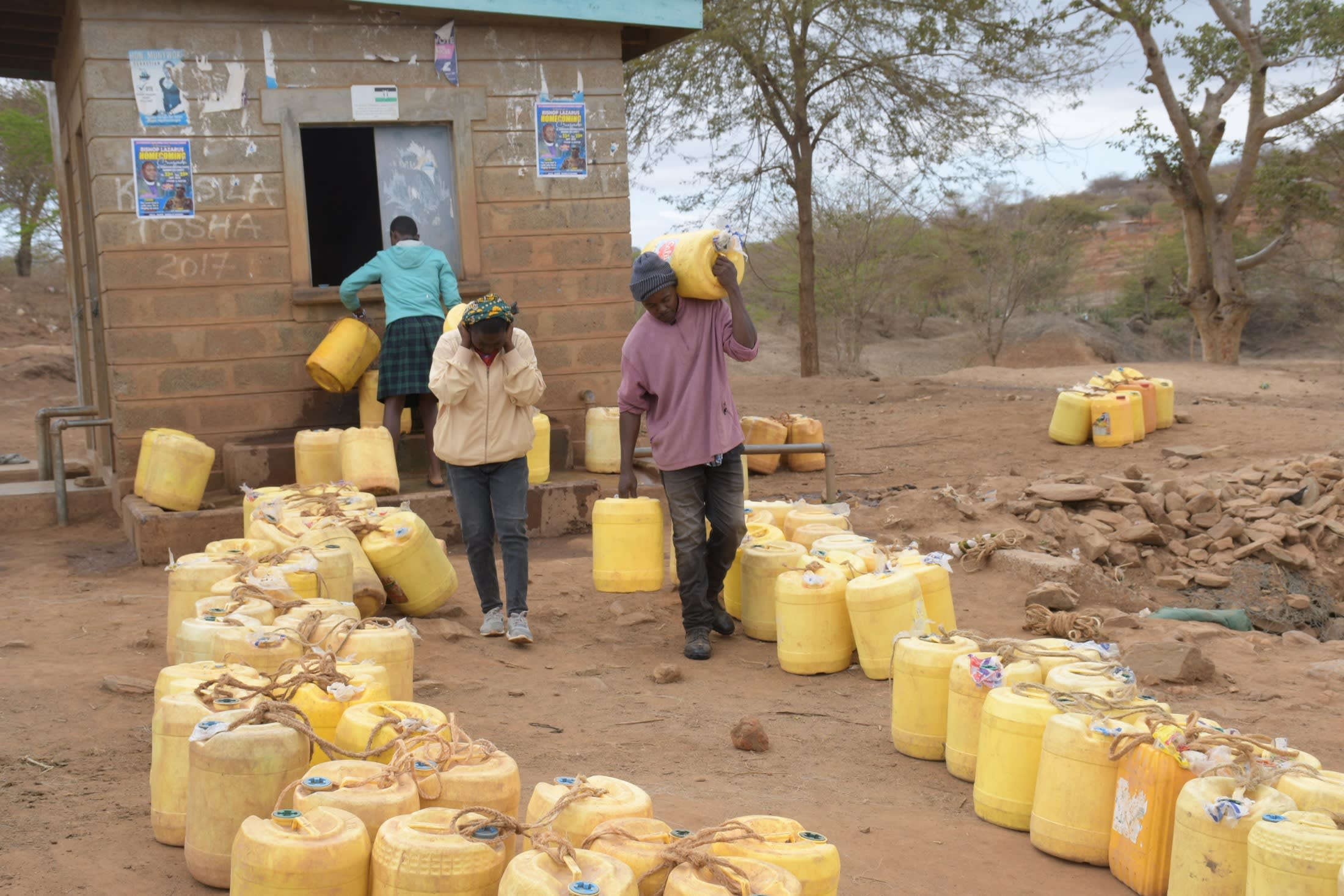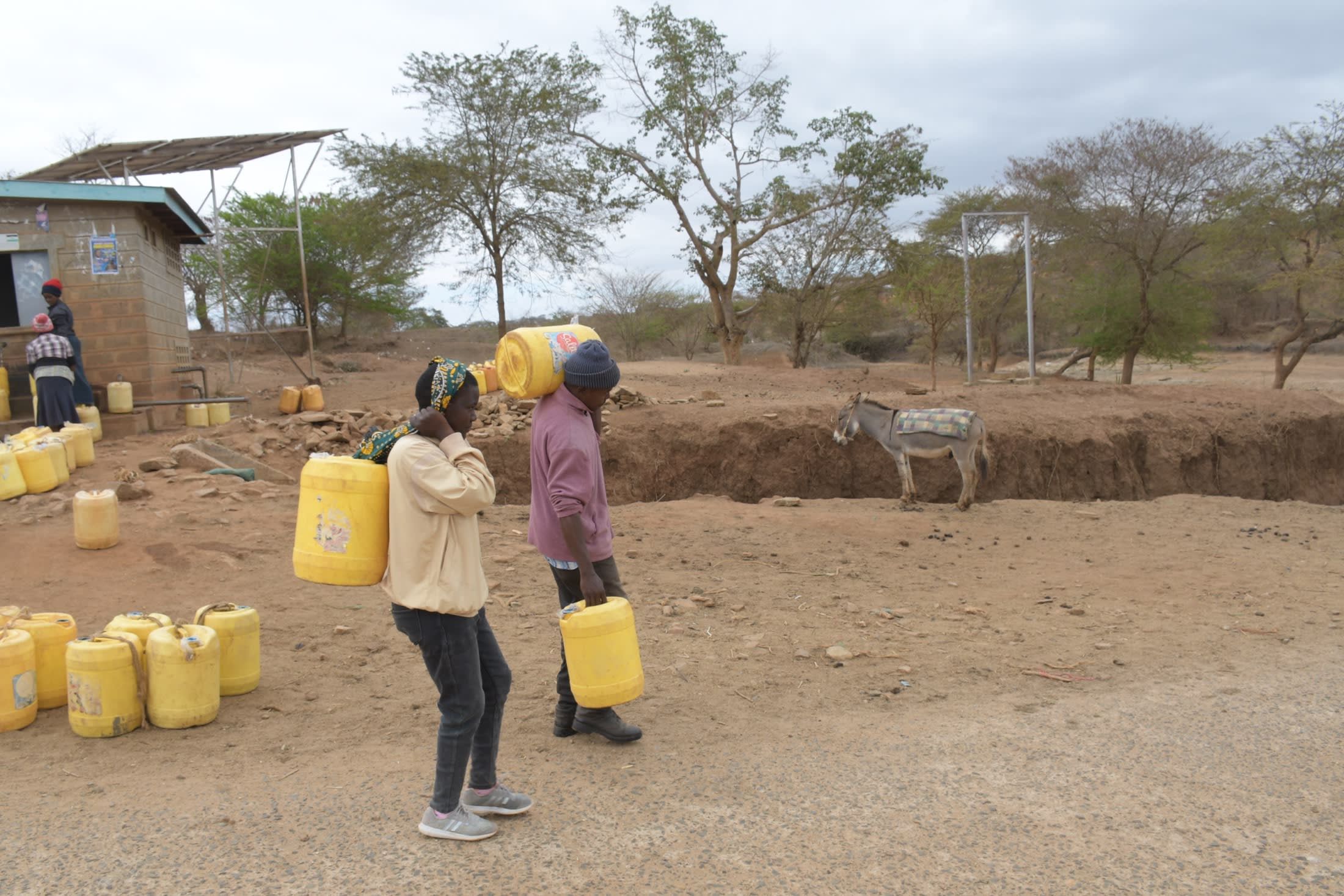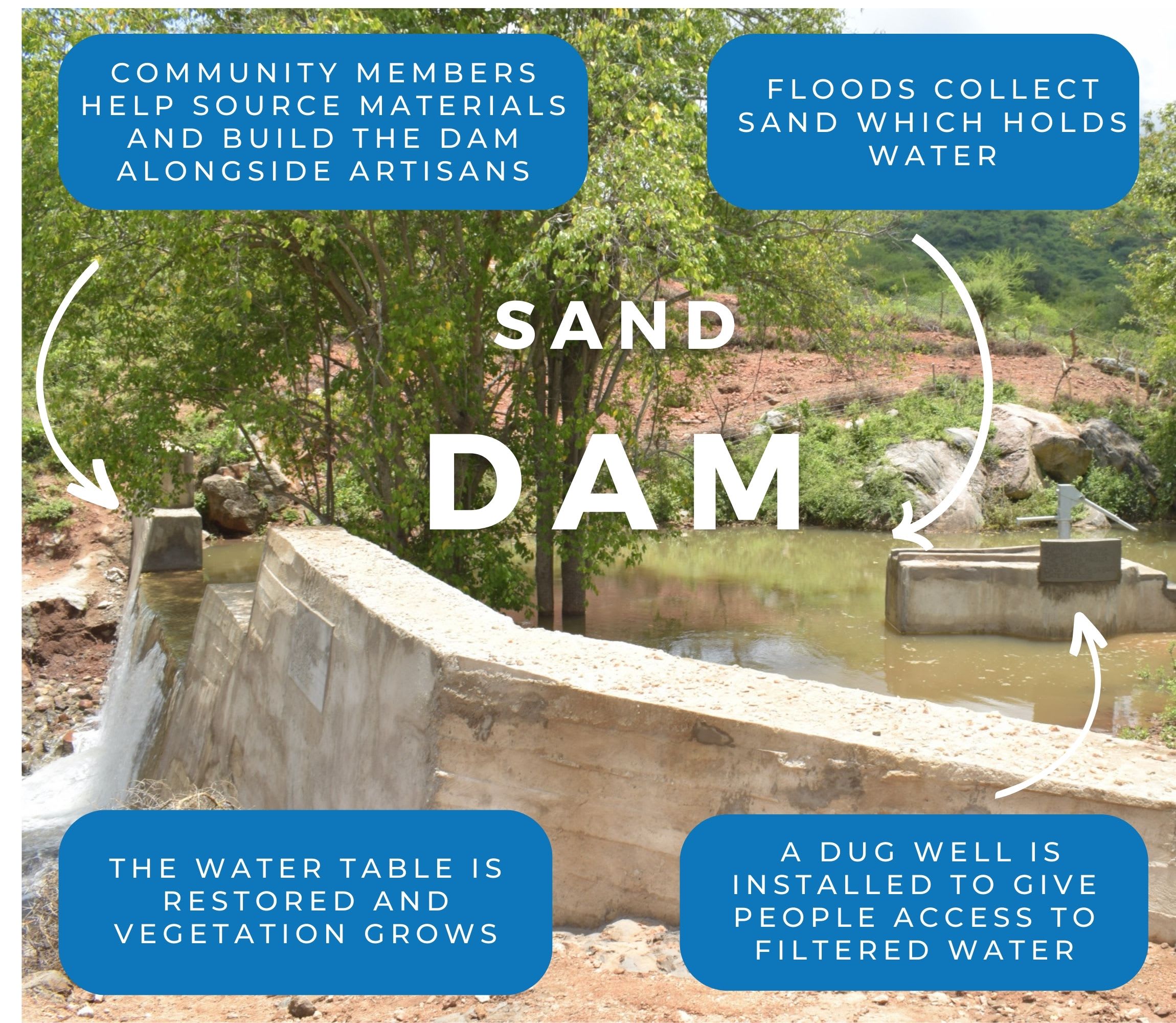The 1500 people living in Ngutho Community do not have access to sufficient, safe water to meet their daily water needs for drinking, watering animals, irrigation for crops, cooking, and maintaining proper hygiene and sanitation.
The community's residents must walk six kilometers (3.5 miles) round trip to fetch water from another community's borehole, where they purchase water from a kiosk despite their already-drained financial resources.

But the water dispensary only provides salty water that cannot be used for irrigation and shouldn't be consumed without treatment. People wait in long queues, often spending up to three hours waiting for their turn, and then carry it home on their backs or by donkey.
“When water comes from improved and more accessible sources, people spend less time and effort in physically collecting it, meaning they can be productive in other ways.” - WHO
"Water scarcity has led to poor [crop] yields, and getting water for irrigation is difficult. It has not rained for the past three years, leading to little water or pasture for my cattle, hence poor yields. I cannot improve my level of income because I do not have water for irrigation," said 38-year-old farmer and secretary of the community's self-help group Ezekiel Munuve, shown below in the mauve shirt, carrying water.

Acute water shortages, especially during peak drought periods, have a ripple effect on the community. Not only do crops and incomes diminish, as Ezekiel mentioned, but everything suffers when water is unavailable.
Food production decreases, personal hygiene becomes challenging, and the community's sanitation suffers, creating a breeding ground for water-related illnesses.
According to Ezekiel, residents regularly experience stomachaches, typhoid, and amoeba from consuming the water untreated. They also fall into debt when they have no money for medical bills from water-related illnesses. And sometimes, there is no medicine at the local health center because of the high community population.
People expend so much of their energy finding and collecting water that they have no reserves left to fight illness or find time for other essential things critical to improving one's life.
"Water is sparingly used at home; thus, I cannot conduct proper hygiene and sanitation. I also have to help out during weekends and after class to fetch water; hence I get little play and remedial time, which affects my studies in school. For instance, I am on a school holiday, but I have had to wake up early and fetch water. I will walk back home during the afternoon because of the long queue," said 17-year-old Elizabeth M., shown below using a scarf around her head to carry water.

This community needs a reliable water source close enough for people to quickly access safe water to regain their time and health and improve their daily lives.
Note: Our proposed water point can only serve 300 people per day. We are working with the community to identify other water solutions that will ensure all 1,500 people in Ngutho have access to safe and reliable drinking water.
What We Can Do:
Our main entry point into the community is the Self-Help Group, which comprises households working together to address water and food scarcity in their region. These members will be our hands and feet in constructing water projects and spreading the message of good hygiene and sanitation to everyone.
Sand Dam
After the community picked the ideal spot, our technical team went in and proved the viability by finding a good foundation of bedrock. Now, our engineers are busy drawing up the blueprints.
We are unified with this community to address the water shortage. As more sand dams are built, the environment will continue to transform. As the sand dams mature and build up more sand, the water tables will rise. Along with this sand dam, a hand-dug well will be installed to give community members an easy, safe way to access that water.
Building this sand dam and the well in this community will help bring clean water closer to the many people living here.
Training
These community members currently do their best to practice good hygiene and sanitation, but their severe lack of water has significantly hindered reaching their fullest potential.
We will hold hygiene and sanitation training sessions with the Self-Help Group and other community members to teach essential hygiene practices and daily habits to establish at the personal, household, and community level. This training will help to ensure that participants have the knowledge they need to make the most out of their new water point as soon as the water is flowing.
One of the most important topics we plan to cover is handling, storage, and water treatment. Having a clean water source will be extremely helpful, but it is useless if water gets contaminated when it is consumed. We will also emphasize the importance of handwashing.
The community and we firmly believe that all of these components will work together to improve living standards here, which will help to unlock the potential for these community members to live better, healthier lives.
We typically work with self-help groups for 3 to 5 years on multiple water projects. We will conduct follow-up visits and refresher training during this period and remain in contact with the group after all of the projects are completed to support their efforts to improve sanitation and hygiene.





 Sand Dam
Sand Dam
 Rehabilitation Project
Rehabilitation Project





























